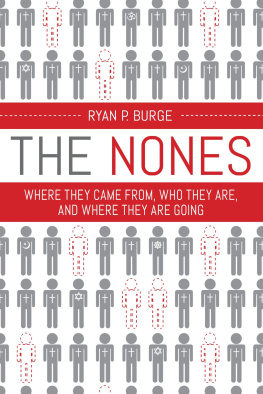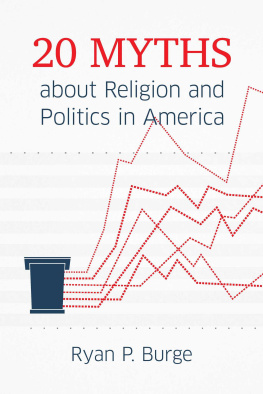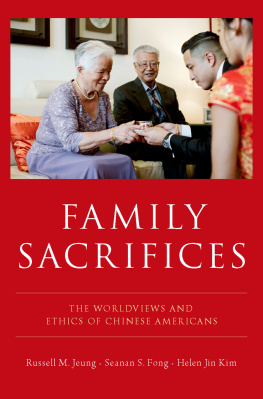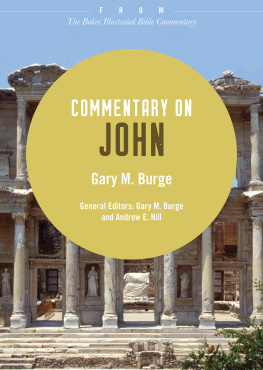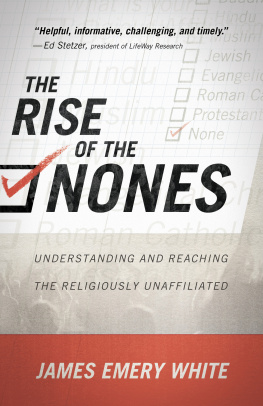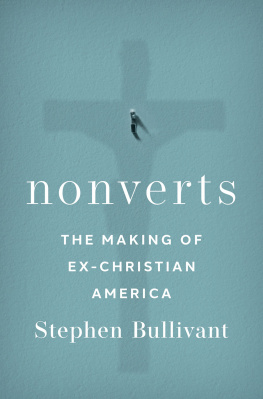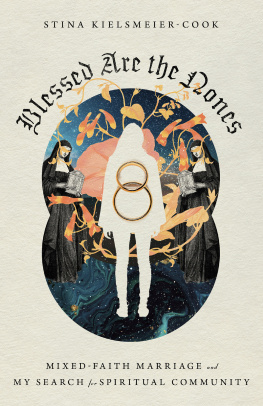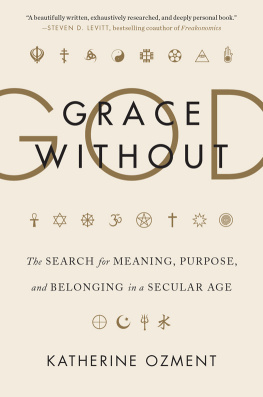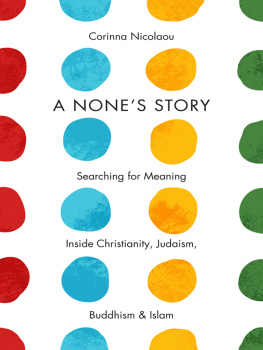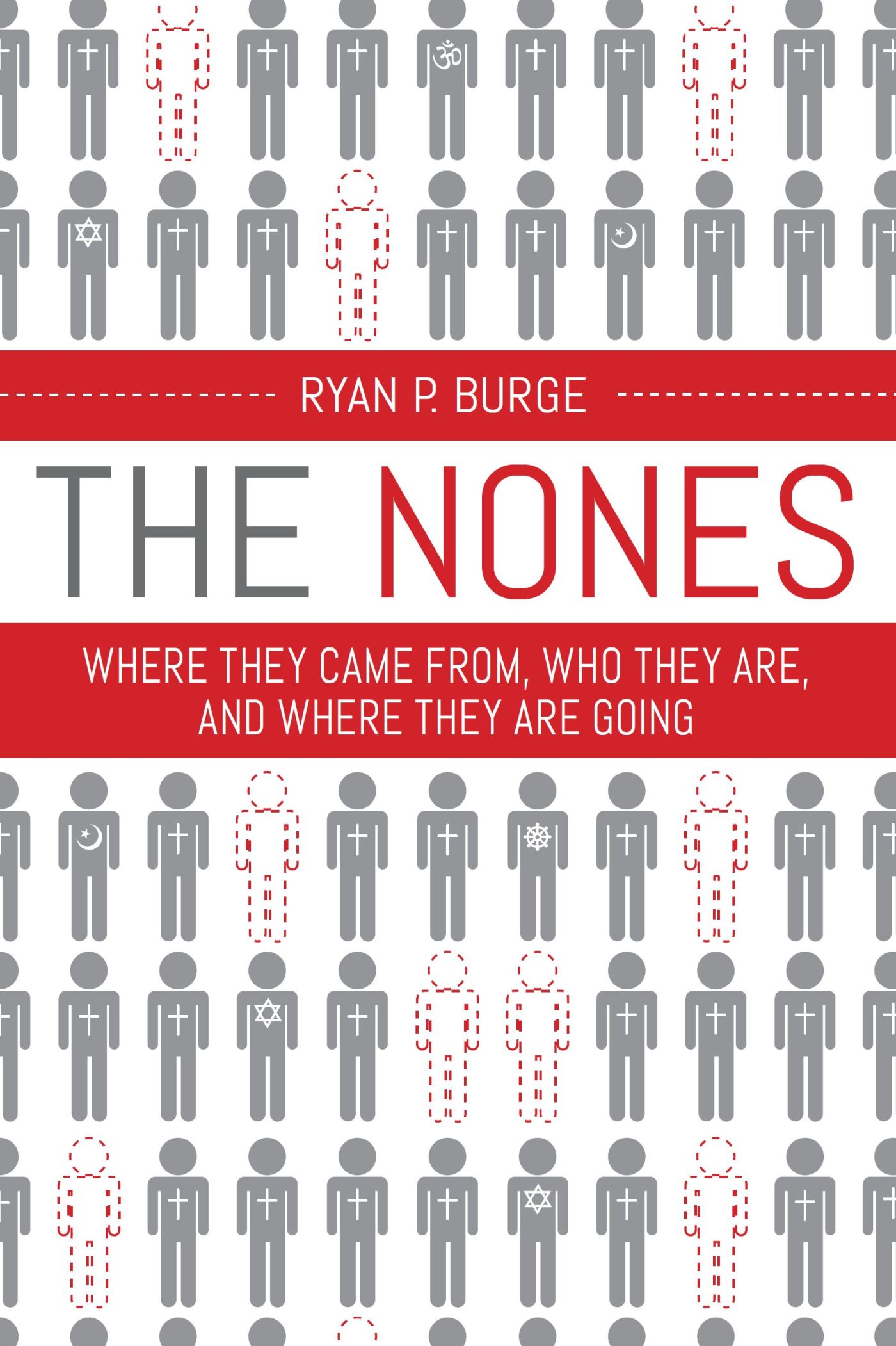
Praise for The Nones
Pastors and church leaders need to steward well our understanding and use of statistics, especially when it comes to understanding and explaining the rise of the nones. In this most helpful book, The Nones, Ryan P. Burge provides an aerial view of the American religious landscape as well as an amplified view of the rise of the nonesAmericas fastest-growing demographic. When youre finished reading this book, you will see the American religious landscape as it isnot as you think it is.
Ed Stetzer, executive director, Wheaton College Billy Graham Center
A great temptation of this age is to label people, to turn individuals into categories that we can automatically dismiss or approve. The growing ranks of the diverse, religiously unaffiliated demographic are especially vulnerable to this reductionism. Against this trend, Ryan P. Burge deploys his expertise as a sociologist and his experience as a pastor to provide an invaluable, insightful, and detailed portrait of the nones. They turn out to be quite something and a reality that anyone involved in ministry or interested in society ought to understand. The Nones is an excellent guide.
David Gibson, director, Center on Religion and Culture, Fordham University
Every time I talk to Ryan P. Burge, I learn something. He is one of the sharpest academics studying religion in the country. He brings both a sharp eye for data and a small-church pastors insight into the changes affecting the American religious landscape. If you want to understand the rise of the nonesthose who claim no religionand how faith groups might respond, this is the book for you.
Bob Smietana, journalist, Religion News Service
You cant minister to those you dont understand. The Nones will expand your knowledge of the rapidly growing religiously unaffiliated population. Using straightforward analysis and rich graphics, Ryan P. Burge masterfully uncovers the origin, character, and future of this diverse but influential group. This analysis concludes with advice for addressing the spiritual needs of the nothing in particular nones. The Nones belongs on every pastors bookshelf.
Scott Thumma, professor and DMin director, Hartford Seminary; director, Hartford Institute for Religion Research
A skill church leaders could develop, even if it spins the leader into some pain, is to listen to the disaffected, those who grew up in the church or near the church and who as young adults have walked on a different path. Anecdotes learned from listening then need to be enhanced and complicated with the kinds of data and interpretation that Ryan P. Burge sorts out in The Nones. Statistics and helpful graphs abound in this book and provide us with graphic displays of an unpleasant, complicated reality. Every section in this book brings me pain as a confessing Christian, but I want to know what is being experienced among those who find my faith inadequate or unhelpful. Be prepared to be distressed and disturbed, but take heartthe pain will lead you to what the gospel has the power to create anew.
Scot McKnight, professor of New Testament, Northern Baptist Theological Seminary
With so much data coming at us, there is a need for reliable sources of data based upon rigorous, trustworthy research. To receive that data in a digestible and plausible form seems too much to ask, but Ryan P. Burge has done just that. From the 3 Bs to the nothing in particulars, The Nones is chock-full of nuggets for both the avid researcher and the responsible citizen.
C. Jeff Woods, interim general secretary, American Baptist Church, USA
Clearly written with even clearer illustrations, The Nones by Ryan P. Burge explains who the nones are, why their numbers are growing, and what this means for the church. You need not be a numbers person to read this book. You need only to care why the religious landscape has changed so much over the past forty years.
Arthur E. Farnsley II, author of Flea Market Jesus and The Bible in American Life; former executive officer, Society for the Scientific Study of Religion
For years pastors and Christian leaders have talked almost glibly about the none-ing of America. Finally, heres a book that can help them better understand both the rise and the diversity of spiritual nones. As a social scientist and a local church pastor, Ryan P. Burge is uniquely qualified to help pastors make sense of the huge shifting religious landscape of America. This book will become a recommended resource of the Send Institute as we help denominations and networks strategize starting new churches for the future.
Daniel Yang, director, Send Institute, Wheaton College Billy Graham Center
The Nones
The Nones
Where They Came From, Who They Are, and Where They Are Going
Ryan P. Burge
Fortress Press
Minneapolis
THE NONES
Where They Came From, Who They Are, and Where They Are Going
Copyright 2021 Fortress Press, an imprint of 1517 Media. All rights reserved. Except for brief quotations in critical articles and reviews, no part of this book may be reproduced in any manner without prior written permission from the publisher. Email or write to Permissions, Fortress Press, Box 1209, Minneapolis, MN 55440-1209.
Scripture quotations are from the New Revised Standard Version Bible 1989 Division of Christian Education of the National Council of the Churches of Christ in the United States of America. Used by permission.
Cover design and illustration: Alisha Lofgren
Cover detail: iStock 2020; Icon set of world religious symbols stock illustration by Panya
Print ISBN: 978-1-5064-6585-2
Ebook ISBN: 978-1-5064-6586-9
To my wife, whose support and care has been more than I deserve. And to my two boys, who give me more joy than I thought possible.
Contents
Two facts will help place this book in a proper context. I have been pastoring American Baptist churches for the past fifteen years, and I also have a PhD in political science, having published fifteen articles in peer-reviewed academic journals. What that means is that I have constantly straddled the world of faith and academia. I realize that makes me pretty atypical. Im no fun at dinner parties because I refuse to talk about my workas a pastor or an academicin a social setting. Way too many landmines. But it does make me pretty well suited to present data about American religion to pastors.
More specifically, I think it makes me an ideal voice to write about one of the most important shifts that has occurred over the last forty years in American religionthe rise of the religiously unaffiliated. As a pastor who is also an academic, I have firsthand knowledge of the power of statistics for people of faith. I have written dozens of pieces for Christianity Today, Religion News Service, and Barna Group that are all grounded in data and receive an overwhelmingly positive response from a variety of audiences.
Unfortunately, as powerful as statistics are, I cant tell you how many sermons Ive heard, books Ive read, and tweets Ive seen in the past few years from well-meaning pastors that are just not statistically accurate. Pastors are supposed to be in the business of preaching the Truth (about not only Jesus Christ but also the social world), but a lot of them need to stay in their lane.
Let me be clear: I dont blame pastors for wanting to use statistics to try to make a point about how church membership is in decline and the religiously unaffiliated are becoming an increasingly important factor in American religion. Pastors want to leave their flock with one thing they can discuss when they sit down for lunch after church, and a good data point sticks in the brain in a way few other things do. People want to have unbiased facts explained in a way that they can understand. Pastors need to be steady sources of accurate information, but unfortunately, some of them arent taking the time to fact-check everything that goes into the weekly sermon.
Next page
